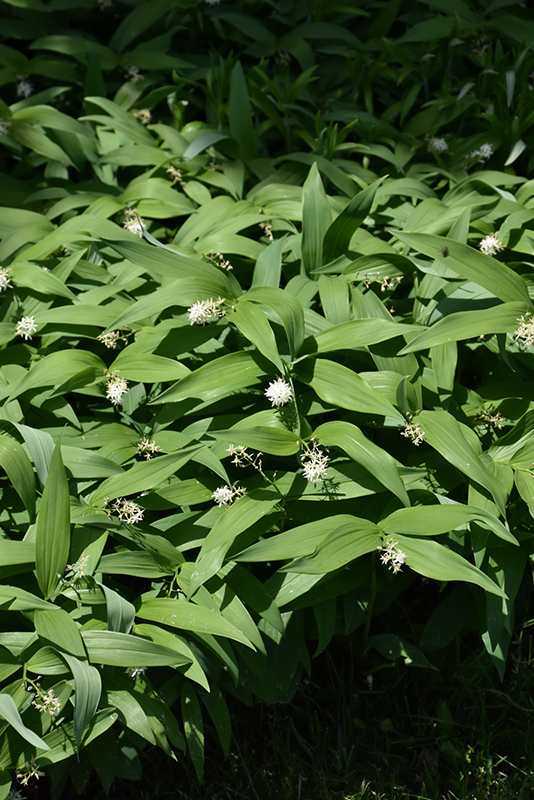Starry False Solomon's Seal
Smilacina stellata
Height: 24 inches
Spacing: 18 inches
Sunlight:
![]()
![]()
Hardiness Zone: 2b
Other Names: Star Flower, Star-flowered Lily of the Valley
Description:
A native woodland perennial with a single, arching stem and alternating dark green oval leaves; white star shaped flowers in terminal clusters appear in late spring to early summer, followed by red berries; an excellent groundcover
Ornamental Features
Starry False Solomon's Seal is primarily grown for its highly ornamental fruit. It features an abundance of magnificent green berries with black stripes from mid summer to early fall, which fade to red over time. It has masses of beautiful panicles of fragrant white star-shaped flowers at the ends of the stems from late spring to early summer, which emerge from distinctive creamy white flower buds, and which are most effective when planted in groupings. Its oval leaves remain forest green in color throughout the season.
Landscape Attributes
Starry False Solomon's Seal is an herbaceous perennial with a shapely form and gracefully arching foliage. Its medium texture blends into the garden, but can always be balanced by a couple of finer or coarser plants for an effective composition.
This plant will require occasional maintenance and upkeep, and is best cleaned up in early spring before it resumes active growth for the season. It is a good choice for attracting butterflies to your yard. Gardeners should be aware of the following characteristic(s) that may warrant special consideration;
- Spreading
Starry False Solomon's Seal is recommended for the following landscape applications;
- Mass Planting
- General Garden Use
- Groundcover
- Naturalizing And Woodland Gardens
Planting & Growing
Starry False Solomon's Seal will grow to be about 24 inches tall at maturity, with a spread of 24 inches. When grown in masses or used as a bedding plant, individual plants should be spaced approximately 18 inches apart. It tends to be leggy, with a typical clearance of 1 foot from the ground, and should be underplanted with lower-growing perennials. It grows at a fast rate, and under ideal conditions can be expected to live for approximately 10 years. As an herbaceous perennial, this plant will usually die back to the crown each winter, and will regrow from the base each spring. Be careful not to disturb the crown in late winter when it may not be readily seen!
This plant does best in full sun to partial shade. It is very adaptable to both dry and moist locations, and should do just fine under typical garden conditions. It is not particular as to soil pH, but grows best in sandy soils. It is highly tolerant of urban pollution and will even thrive in inner city environments. This species is native to parts of North America. It can be propagated by division.
